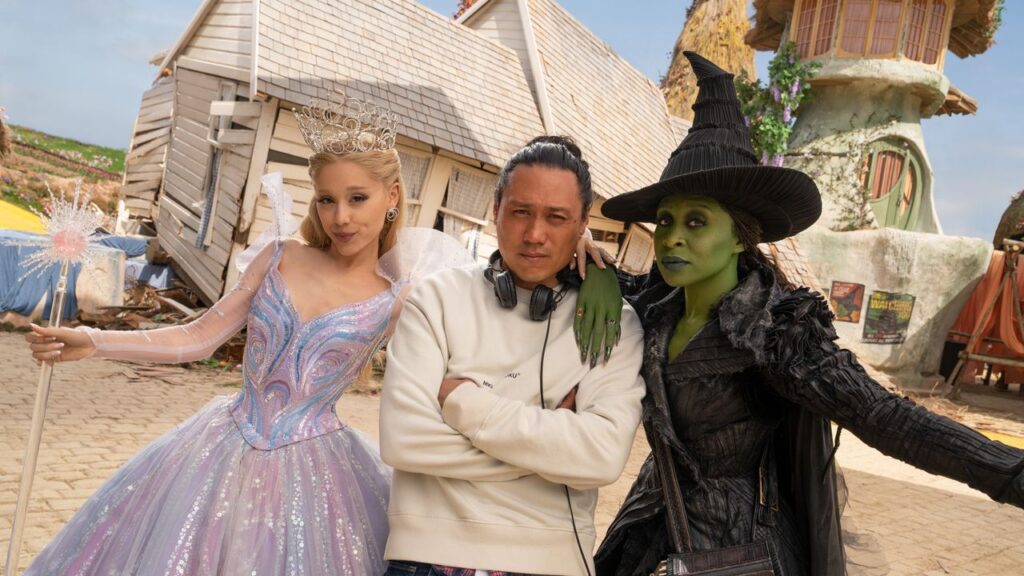Vanity Fair: Now that the first movie is a huge hit, be honest: How nervous were you before it hit theaters?
Jon M. Chu: When I took this job, I was like, “Well, either my career’s going to end and I’ll go back to wedding videos, or we’re going to do something extraordinary.” It was COVID lockdown, so we wondered if movies would even exist anymore. And movie musicals were having a hard time. So I was more scared at the beginning of pre-production.
I looked [Erivo and Grande] in the eyes and I said, “I don’t know. I can’t say I have all the answers, but we’ve got to do this, and we’ve got to ignore everybody else.” At some point, you have to turn away from the audience, face the orchestra, and conduct. And that’s what we’ve agreed to do. So in that process of shooting for a year and a half and editing, I had already shut off the outside world.
You have a talent for casting. How do you know if an actor is right for a role?
I think the thing for me is they have to be emotionally available, because I think that that’s what the audience wants to see. If they’re emotionally available, then we can interpret this character in many different ways, but they can incorporate an emotional truth. Our job is to go explore those things that people don’t necessarily have time to think about all the time.
Can you give an example of a time that an actor was struggling, and how you helped them?
Cynthia presents herself in such an untouchable way, but she was very scared about how we would portray what is essentially a caricature of a witch. The joke is, “This is the Wicked Witch. Look how crazy she is.” And Cynthia is like, “That is just not how I’m going to present her.” She doesn’t talk a lot, and Cynthia wanted more lines. So it was a very delicate balance of us finding it together. We were there to support each other. With Ariana, she had a very specific idea of who Galinda was because she loved her. We were there for each other as a group, because it’s scary to take on a movie and these roles that everybody owns, essentially.

